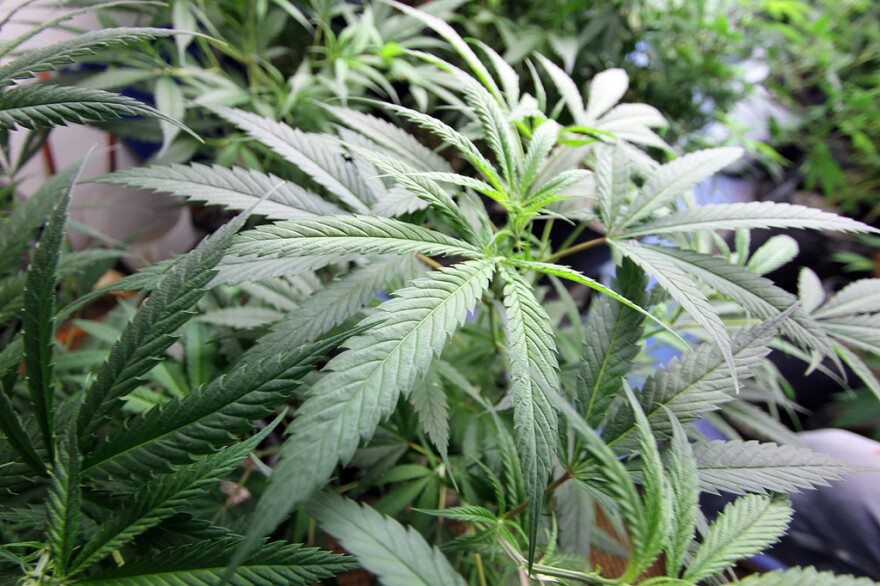The drug has not been FDA approved, but patients and doctors are seeing benefits.
Connecticut?'s medical marijuana program is proving to be a success. The program has been up and running since 2014 with more than 12,000 patients and a growing list of certified doctors, according to the Department of Consumer Protection.
Speaking on WNPR?'s Where We Live, Commissioner Jonathan Harris said although the drug has not been FDA approved, patients and doctors are seeing benefits. He pointed to "anecdotal results of shrinkage of tumors, providing good health care, and providing another option to really, really sick patients," Harris said.
Patients with certain medical conditions can obtain medical marijuana from eight dispensaries in the state. But Harris said the guidelines are stringent.
"You have to meet certain health safety, security, and other requirements," he said. "You can'?t have any pesticides that are put on the plants when they?'re grown. It has to be lab tested and labeled and put into secure packaging."
Meanwhile, a researcher told Where We Live that using medical marijuana instead of prescription opioids could be one possible way to combat a spike in overdose deaths.
Kevin Boehnke, a graduate student at the University of Michigan, looked at nearly 200 people who used medical marijuana to treat chronic pain.
"They substantially decreased their opioid medication. Of the 118 who were using opioids before cannabis, they said that they decreased their opioid intake by about 64 percent," said Boehnke. "They all had decreased side effects of their medications."
More research is needed, but the DCP said it will soon start approving scientific studies on how medical marijuana is used to treat patients in the state.
The cost of the program, however, can be prohibitive for some, since most insurance providers do not cover medical marijuana. There's also an upfront annual cost of $100 to be a state registered patient.

"We have to have discussions about what happens with that money," Harris said. "Originally, it was put in a fund that would be used to replenish the program so that it was kind of a revolving fund with patients -- people with these serious diseases helping each other. Unfortunately, that was put into the general fund, so I have some personal opinions on that."
Some lawmakers have pushed to legalize the recreational use of marijuana to capitalize on the financial benefits. Two bills have failed so far, but there are plans to revisit the legalization bill in the future.
Tucker Ives contributed to this report.



